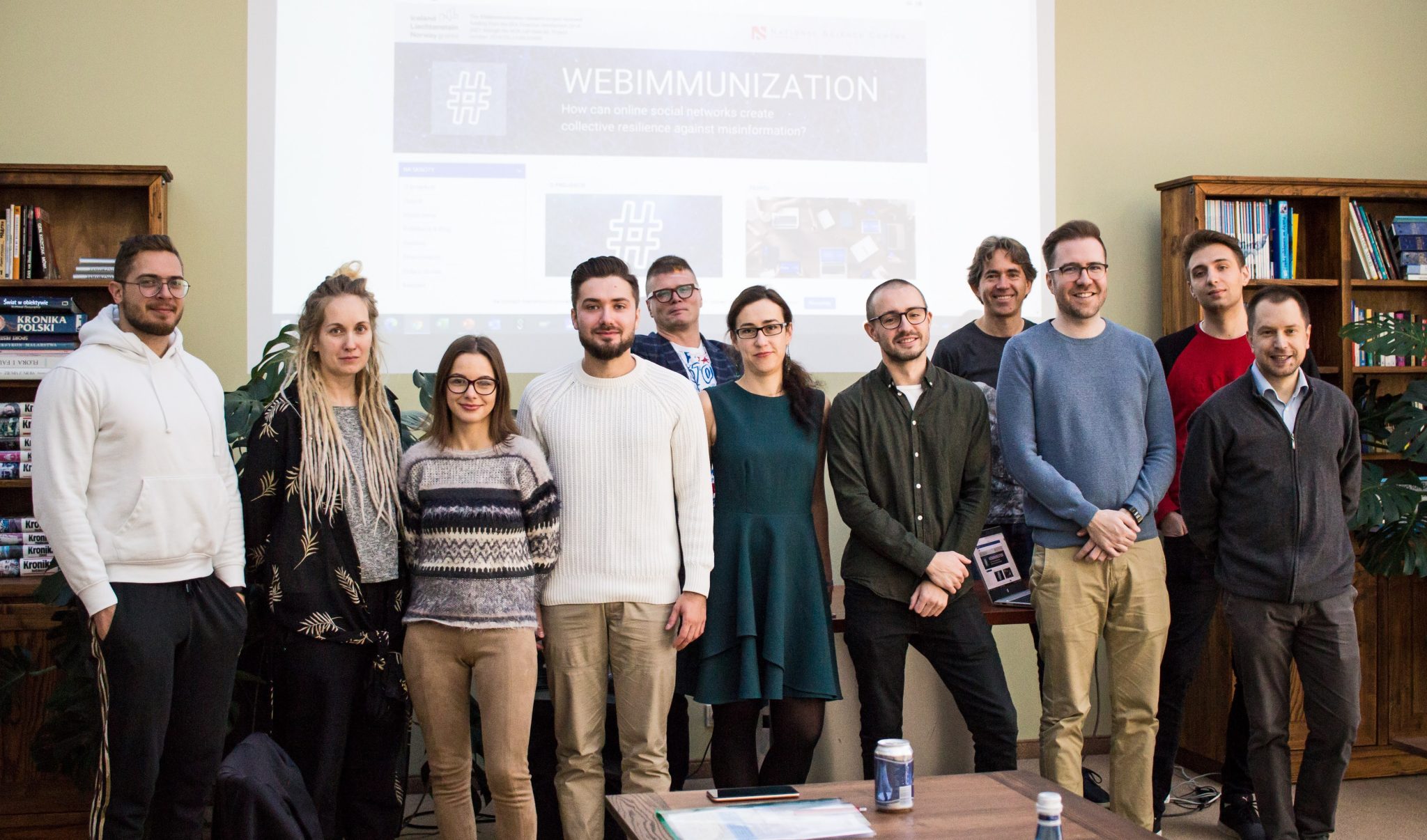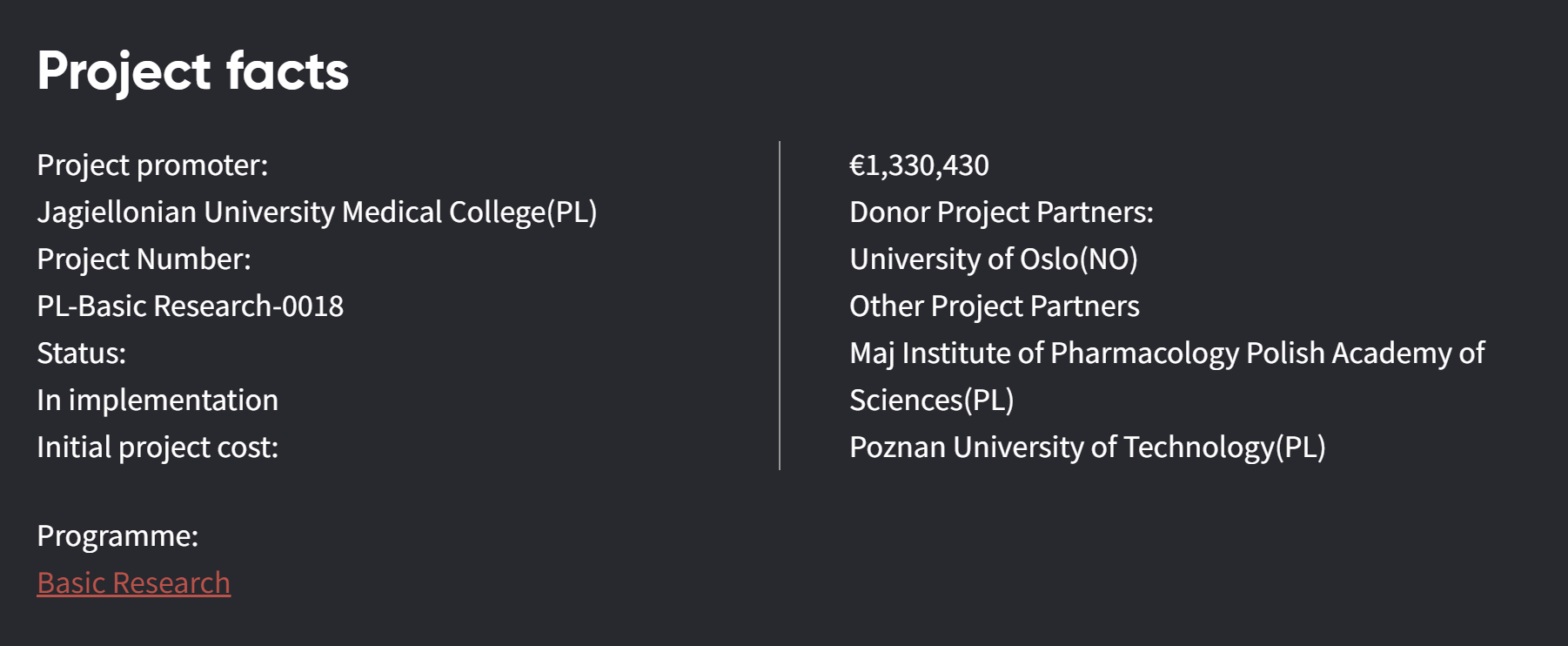People living in modern, digitized societies have to process an unprecedented amount of online information on a daily basis. Crucially, they often actively participate in the development and spread of this information through the online social networks they belong to. Although these changes in the distribution of information have a democratizing potential because they take power away from media companies and governments, and empower a large number of formerly passive consumers, they also bring serious challenges.
In the #Webimmunization project, financed by the EEA Grants, researchers from Poland and Norway have teamed up across disciplines to find common solutions to shared challenges across borders.
The spread of misinformation - popularly called "fake news" - can undermine a constructive and fact-based public discourse on the big issues of our time. For example, the spread of misinformation through social networks can undermine democratic institutions, benefit populism and extremism, and foster anti-scientific scepticism. It is therefore important to understand the processes that enable the spread of misinformation, as well as to identify and study ways that individuals and societies can stop it.
"Web immunity”
Against this background, the research project asks the overarching question: what can make online users immune to the spread of misinformation and bad ideas? The researchers call this hypothetical resistance to misinformation on the web “web immunity”.
To answer this question, the project combines perspectives from epidemiology, psychology, philosophy and computer science. Its main goal is to develop tools that can reliably assess the immunity of individual actors and entire networks of online users against misinformation. Moreover, it aims to test how this web immunization influences behaviour online and ultimately how it can be increased. Importantly, the project also has a clear focus on ethical dilemmas related to the concept of web immunization.
For instance, what constitutes misinformation may not always be clear cut and agreed upon when one discusses ethical and political issues, as well as whether or not one should aim for an immunization of individuals and networks touches upon questions related to individuals’ autonomy and agency. In sum, our project aims at providing novel empirical insights into the mechanisms and processes leading to and resulting from web immunity, including its ethical challenges. This knowledge we expect to inspire critical future research and to help address some of the most pressing societal issues of our time.

The #webimmunization project team consists of neuroscientists from Maj Institute of Pharmacology of the Polish Academy of Sciences, computer scientists from Poznan University of Technology, psychologists from the University of Oslo and philosophers specialising in cognitive science and research ethics from Jagiellonian University Medical College (JU MC) which also coordinates the work between the partners in the Research Team.
“Fruitful collaboration”
Researchers from the Maj Institute of Pharmacology of the PAS, using the experience gained by scientists at the University of Oslo, developed and tested a tool measuring individual susceptibility to false information online. Following this, Professor Jonas R. Kunst from the University of Oslo – in collaboration with computer scientists from the Poznan University of Technology and researchers from JU MC and Maj Institute of Pharmacology – conducted observations of the actual behaviour of research participants on X/Twitter and compared them with the results of tests and experiments that had been conducted earlier in research.
“The collaboration with the University of Oslo was therefore crucial to the project's outcome: the development of a tool that allows predicting the actual behaviour of social network users. The fruitful nature of the collaboration is confirmed by the joint publications, four of which have already appeared in international journals, with others in review and in preparation”, says Adam Koprowski, Press Officer at the Jagiellonian University Medical College.
The interdisciplinary nature of the project required intensive joint research.
“After the pandemic, we had four face-to-face meetings, three of which took place in Poland and one in Norway, in addition to countless online meetings. During the period of intensive research on developing a tool to categorise information posted online by research participants, we held up to several meetings per week”, says Koprowski.
The administrative cooperation with the University of Oslo is also progressing successfully - despite numerous challenges, such as fees for downloading research data from X/Twitter.
“Innovative approaches”
“The collaboration has worked excellently. The interdisciplinary focus was a challenge in the beginning, but we quickly found a common language and I think that the approaches we came up with are innovative. The project has led to a number of publications and I believe we have built long-term collaborative relationships and friendships”, says Jonas R. Kunst, Professor at the Department of Psychology, University of Oslo.
The project is part of the Polish Basic Research Programme with the objective of enhanced research-based knowledge development. The programme supports polar research, research on carbon capture and storage and social sciences. The Programme Operator is the National Science Centre (NCN) in Poland.
The centre operates as a pivotal institution overseeing the Polish Basic research programme, which forms a part of the broader research landscape in Poland. NCN is a facilitator, enabler, and curator of scientific innovation within the Polish research ecosystem.
Its role in overseeing the Basic Research Programme underscores its commitment to fostering groundbreaking research initiatives that push the boundaries of knowledge and contribute significantly to societal advancements. This includes initiatives like the IdeaLab call, which seeks to stimulate unconventional and transformative projects, often at the intersection of different disciplines.

